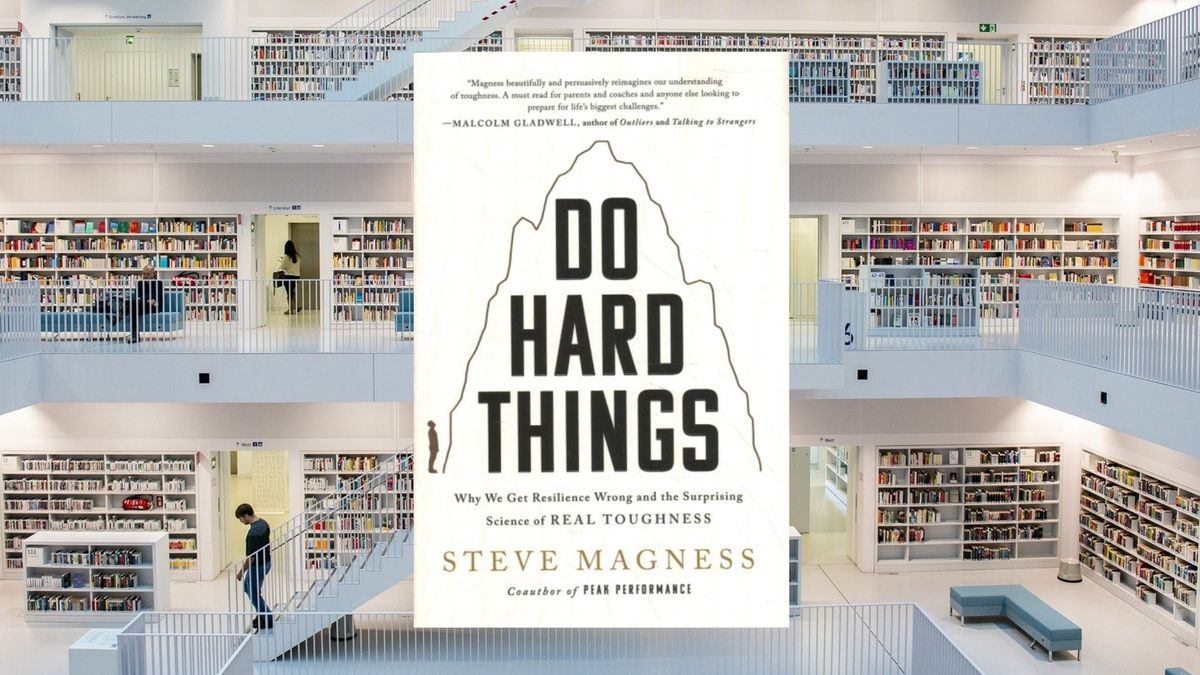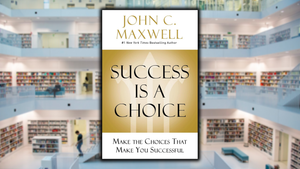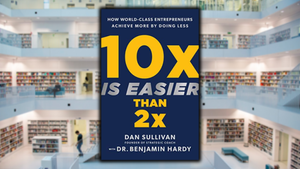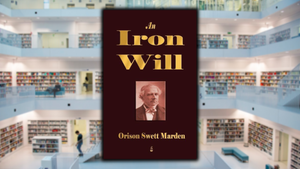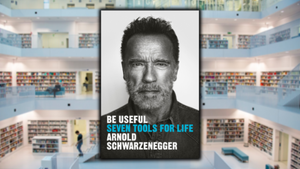
This Book is For:
*Athletes and coaches who are looking to set new standards of personal excellence and competitive greatness that have nothing to do with punishment and ridicule and everything to do with intense effort and emotional flexibility.
*Business owners and professionals who feel burned out trying to live up to unrealistic expectations of impossible levels of accomplishment, and who instead want to learn how to achieve sustainable success and competitive greatness.
*Anyone who needs someone to believe in their underlying worth as individuals and competitors, and who wants to learn how to treat themselves as they would a really good friend whom they wanted to see succeed.
*Everyone who's ever felt that they have more inside of them to give, and who wants to develop their ability to access more of that potential in order to share it with the world.
Summary:
“Real toughness is experiencing discomfort or distress, leaning in, paying attention, and creating space to take thoughtful action. It’s maintaining a clear head to be able to make the appropriate decision.
Toughness is navigating discomfort to make the best decision you can. And research shows that this model of toughness is more effective at getting results than the old one.”
-Steve Magness
We've never really understood the true nature of mental toughness until now.
Before Steve Magness and the pioneering scientists whose research he presents in this book came along, we've seen only one side of it, and this book will show you that there's more to toughness than we usually realize and more inside you than you've ever known.
The old model of mental toughness was based on fear and ridicule, shame and doubt. It was based on hiding all evidence of weakness, and the old style of coaching and leadership involved yelling and screaming at people until they get closer to what we wanted them to be - not for the purpose of allowing them to reach their full potential.
That changes today, and it changes with this book, Do Hard Things.
Steve Magness is a high-performance coach and scientist who works with Olympic athletes and people of comparable ability and prowess, and his book is a compelling and useful attempt to "fix" our old definition of mental toughness and replace it with something more flexible, more insightful, and ultimately, more useful.
Do Hard Things draws from the very latest in science and psychology to teach us how we can work with our body, emotions, and feelings, and how we can shift the very meaning of discomfort in our minds by leaning in, paying attention, and allowing ourselves the mental freedom to perform at the highest level of which we are capable.
The new model of toughness is all about embracing reality, listening to what our body is trying to tell us, responding instead of reacting, and transcending discomfort by tapping into the deeper meaning behind it all. The old model made everything look like a nail, so the only tool it could offer us was a hammer.
One of the most important ideas we'll explore in this breakdown is the vital importance of always telling yourself the truth about what's really going on. It's this foundational honesty that is a massive part of what makes true toughness possible.
We'll talk about the difference between challenges and threats, and how successful competitors tend to view what's in front of them as the former instead of the latter. It's a more productive approach to overcoming adversity that realizes that what your body is telling you are messages that you can either choose to accept or choose to ignore and let go to mental voicemail.
There's everything in this book from mindfulness, military case studies, psychology, neuroscience, philosophy, and more, and it all comes together in a wonderful book that ends up being more growth-focused, intent on building you up, rather than tearing you down. Focusing on what's right with you, what you can accomplish, rather than what you lack or what is temporarily out of reach.
You already have everything you need within you in order to become more resilient, stronger, tougher, more flexible, and more adaptable. To paraphrase the great psychologist, Abraham Maslow, toughness isn't about adding something to you that isn't there already, it's about acting, striving, and competing as the person you are...with nothing taken away.
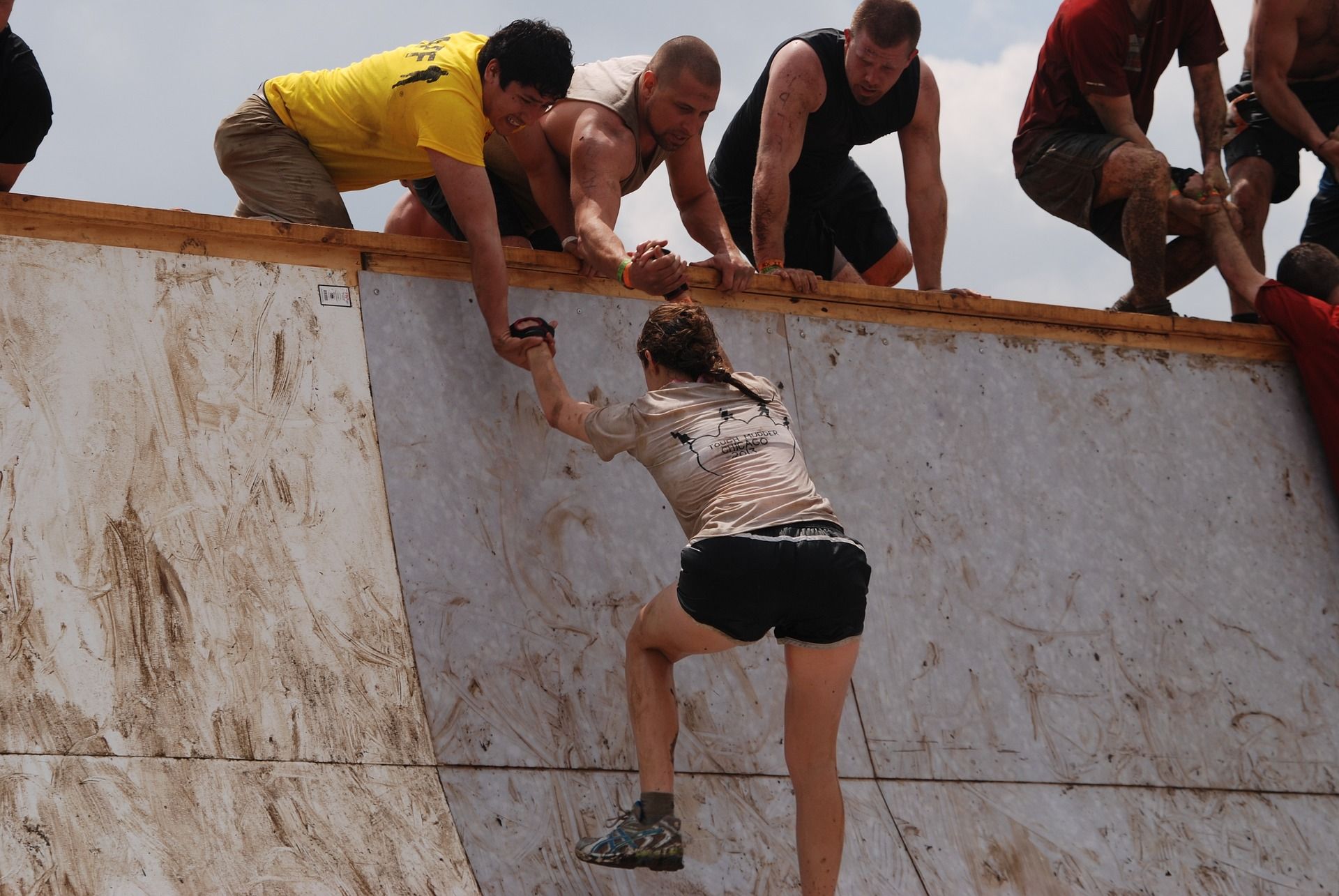
Key Ideas:
#1: Our Current Model of Toughness is Outdated
“The old model of toughness, in essence, throws people into the deep end of the pool but forgets that we need to first teach people how to swim.”
There are leaders and coaches who scream, yell, and rage, and there are leaders and coaches who do not. Both types of coaches win games, and you'll find both types of leaders at the head of successful companies and sales teams.
But the former type is fading into irrelevance, and modern research into the science of toughness and resilience has shed light on a better way to lead.
There is some value in being harsh and demanding as a leader, and for every quiet unassuming John Wooden, there's a Vince Lombardi out there screaming at his players at the top of his lungs and still winning championships.
Not only that, but different players will respond to different types of "encouragement," let's call it. Personally, I love - and respond well to - the David Goggins/Tom Platz style of DEMANDING excellence from oneself and REFUSING ever to leave the gym a loser. I've never seen either of them berate anyone, but they don't go easy on you, either. And no, you're right, some people wouldn't be able to handle that kind of tough love.
But what's common to both approaches is that successful teams led by outstanding leaders develop the skills necessary to thrive at a high level of accomplishment. Their focus on teaching skills and drilling fundamentals is what puts them ahead, not the verbal bullets they're firing at those under their leadership.
Before "toughen up" can ever be helpful as a directive, people need to know what to actually do. If someone doesn't already possess the skills to be able to do what you're demanding they do, no amount of yelling and screaming or berating is going to help. You have to teach someone how to be tough, not ridicule them because they aren't already.
A better approach to developing toughness works in the same way as a vaccine. Vaccines expose people to limited quantities of a disease in order to build up a person's resistance over time. In the same way, when you gradually expose people to harder and harder challenges, their ability to meet those challenges grows in step with those increased exposures.
Any respectable model of mental toughness is going to involve teaching people the fundamental skills of their chosen activity and placing them in situations that allow them to practice and develop those skills against harder and harder opponents, which Magness explains very well here:
“If we ‘vaccinate’ someone to extreme stress, they’ll be able to handle it better. The first step isn’t to throw someone into the deep end of extreme stress; it’s teaching the skills necessary to cope with the situation. Without learning the skills, the second part – putting individuals in a harrowing environment to practice those skills – is useless. The key to stress inoculation, though, is like a real vaccine: you don’t want it to be so powerful that you overwhelm the system.”
#2: And This Above All: To Thine Own Self Be True
“A key component of real toughness is acknowledging when something is hard, not pretending it isn’t.
An honest appraisal of ourselves and the situation allows us to have a productive response to stress. It can shift whether our body is pushed toward fear or excitement, challenge or threat. And in turn, whether we’ll take a risk, shy away, or be able to access our full potential.”
Leaders who instill fear and feelings of inadequacy end up creating a culture of dishonesty as well, and this is disastrous for high performance.
When it's not psychologically safe for people to admit - even to themselves - that they're having difficulties, they miss out on crucial opportunities to be able to turn negative stressors into positive occasions for growth.
We'll talk more about this in the next Key Idea, but the competitor who's made to feel as though they need to put on this Ivan Drago-like show of invincibility at all times isn't going to progress at the same rate as someone who possesses the strength to be completely honest with themselves.
As the Nobel Prize-winning theoretical physicist, Richard Feynmann used to say, the first principle is that you must never fool yourself and you are the easiest person to fool. Our ability to make progress in the pursuits that matter deeply to us depends on our capacity for honesty, and that's why you must never, ever, ever lie to yourself if it's your wish to realize your fullest potential.
Dr. Feynmann is right: our own capacity for self-deception is quite stunning, and Steve Magness correctly notes that it's the enemy of progress. We also need to be honest when we ask ourselves, "Do I want to shrink away from this new challenge? Or do I have what it takes to proceed, to take one more step into the unknown?"
It's all about developing the mental pliability necessary to get the correct response out of ourselves. It's about saying, "Maybe I don't have what it takes yet, but I can learn, I can improve, and I don't yet know the limits of that. So maybe I should keep going and try to find out."
In Hamlet, when Polonius says to Laertes, "And this above all: to thine own self be true," he's dispensing incredibly effective, timeless advice. He's not preparing the road for Laertes but preparing Laertes for the road, and with this first principle in mind, he stands a much better chance of handling adversity. As Steve Magness says himself:
“Our ability to be ‘tough’ and handle adversity starts well before we even encounter any difficulty. It starts with embracing the reality of the situation and what you’re capable of.”
#3: Seeing Challenges Where Others See Only Threats
“Research consistently shows that tougher individuals are able to perceive stressful situations as challenges instead of threats.”
You should be careful how you see the world because it really is that way.
The reality we find ourselves in isn't infinitely malleable, of course, but we do have some significant say in what goes on in our direct, felt experience. As human beings, we can mentally reframe stressful situations into healthy challenges, and it's imperative that we do.
Steve Magness's research backs this up. In his words:
“Our appraisal of a situation as a threat or as a challenge depends on the perceived demands of that stressor versus our perceived abilities to handle them. Do we have the resources to handle the demands?”
We've touched on this theme already: in order to forthrightly address any challenge and come out stronger - transformed in some way - we need to build the requisite skills first. And not only that, but we need to recognize that we possess those skills and develop the willingness and ability to use them when facing threats of any kind.
A big part of this comes down to preparation. Have we done the work? Have we developed the confidence that comes with competence? Remember this: when you have put forth your full, entire effort into being as prepared as you can possibly be, that will give you immense strength when it comes to deploying those skills in tough situations.
Moreover, you won't perceive those tough situations as a terrifying, existential threat, but rather as an opportunity to advance closer to your as-yet unrealized potential. You'll begin to see challenges where others see only threats, and you'll have the solid, inner knowing that you have what it takes to meet them. Because it's true what Steve says:
“Whether it’s climbing a ladder or a mountain, our biological response and the sensations that come with it are guided not only by the actual experience but by our expectations. How we see the world shapes how we respond to it.”
#4: Improve Your Best Average
“Instead of aiming for our best performance, something that we can only accomplish rarely, shoot for improving your best average. When we judge ourselves against our all-time best, we inevitably fall short more often than not. Instead, averaging out our five most recent performances gives us a still tricky but achievable goal.”
I love this idea of stacking up small wins, and when I work with clients one-on-one, I make sure that they're aware of all the momentum they're generating from taking relentless action on their exercises and goals.
Furthermore, I make a point - and I love to see other authors back me up on this - to get people to measure their progress against how far they've come already, rather than how far away they still are from their ultimate goal.
Steve Magness makes an excellent observation here as well. It's unrealistic to assume that you're going to keep hitting PRs (either at the gym or anywhere) week after week after week without end. People plateau, they level off, and often through no fault of their own. It's just how the Game of Life is set up.
Much better than beating ourselves up for failing to surpass our previous effort level of accomplishment every single time, we can improve our best average, and measure ourselves in a way that will instill confidence and pride, rather than self-loathing and feelings of failure or unworthiness.
My advice? See if it helps to shift your standards and measurements to include the factors that you can control (like the effort you put in), and place a greater emphasis on steady improvement over time, rather than rapid progress every single time you practice or compete.
You can put this into practice by measuring your attempts and keeping track of at least the previous five. If you are, say, a runner, and your best mile time is 7:30, simply focus on improving your average time. You won't always be able to shave off seconds from your time, but you might run a 7-minute mile one day, and a bit slower than 7:30 the next few times after that. But your average time will be going down all the time, and that kind of progress deserves to be celebrated, even if you don't hit personal bests every single day on the track.
The important theme here is that you'll be cheering yourself on, and treating yourself like you would a very good friend of yours who you wanted to see succeed. You'll be supporting yourself like a great coach would, someone who sees your potential even when it may be invisible to you.
#5: Messengers and Pushers
“Accompanying any difficult situation is a cacophony of feelings and emotions. Understanding their role as messengers and pushers allows you to find clarity instead of being overwhelmed with confusion.
Feelings give you a clue to what your body is predicting. A touch of anxiety signals that you may be a bit wary of what’s to come but you’re fully equipped to take it on. A sense of dread, and you know your body is preparing for the worst, ready to hit the eject button, and you might need to try a different coping strategy to make your way to the other side of the challenge.
Feelings provide clues to where your body is hedging its bet. And the beautiful thing is the more clarity you have, the easier it is to choose whether you go along with that decision or chart a new course.”
Feelings are always valid, but they're not always evidence. Steve Magness and I believe that you should always listen to your emotions - receive the message that your body is trying to send you - but you don't have to listen to them. You can delete the message, but you should at least open it.
Your body is going to be sending you all these signals - fear, dread, excitement, etc. - and their purpose is to nudge you into taking a particular course of action. To take stock of your situation and your capability to meet it successfully. To rise to the challenge or fall back and regroup.
What you end up doing is completely up to you, but Steve's point about clarity is well-taken. It's good advice to lean into the experience of the emotions that you're feeling and see what they're trying to tell you. Engage them, and run through different scenarios in your mind regarding likely outcomes, instead of letting your emotions run you.
What's the message? What are your emotions hinting at? What are they pushing you to do? What is your inner voice saying? What should you do next?
This is where flexibility comes in because sometimes you have to listen and other times it's best to put your hand up, call for silence, and ignore what you're feeling in favor of going ahead with what you planned to do in the first place.
This is emotional maturity, and it doesn't develop by accident. Maturity is always at least somewhat intentional, and reaching it is rarely easy. It gets easier with practice and time, but you'll always be well served by maintaining the flexibility to chart your own path:
“It’s easy to come up with hard-and-fast rules on what we should or shouldn’t say to ourselves, but just like with emotions, there aren’t good or bad inner voices, just ones we need or don’t need to hear at that moment. It’s up to us to determine which voice we need and when.”
#6: The Easiest Way to Kill Motivation
“There is no easier way to kill motivation than making future progress seem impossible. Once someone sees the goal as unattainable, complacency and apathy soon follow.
Being able to see yourself grow is a fundamental human need. As leaders, we need to create environments that allow people to see a brighter future that includes growth and mastery. That means providing pathways for moving up in the workplace and multiple different ways on which to judge success and growth.
If it’s only about a single metric or the bottom line, we’re setting ourselves up for failure.”
Your future is so bright that it hurts my eyes to even look at it!
Seriously! Get excited about what's in store for you, because no matter where you are in life, the potential for significant growth and peaceful contentment is always available to you.
That's my earnest belief, and it's backed up by the science.
Not only that, when people are cut off from growth, the only other option is decay and eventual death. It's grow or die here on planet Earth, and you always have a choice between death and decay or growth and excellence. And once you set your sights on growth, that's when your motivation tends to kick into gear.
It's when the light at the end of the tunnel grows dim that we begin to experience the complacency and apathy that Steve Magness speaks about in the quote above. It's exactly what Les Brown says: "If you can look up, you can get up."
Again, this positive perspective isn't going to be automatic. Some people are more naturally optimistic than others, of course, but this outlook on life is a choice, made anew each day, and excellence is never an accident. If you have a goal, a dream, you need to make it happen; you need to will it to happen; you need to give everything you have for it. That's mental toughness.
Toughness isn't necessarily concerned with the end result, or whether you were successful on the first attempt...or the nine hundredth attempt. The effort alone will always be worth it.
Remember this: if you give it everything you've got within you, then there's nothing that can show up on the scoreboard that will ever make you a loser. And I'll leave you with one more quote, this one from the great Oscar Wilde:
"Everything will be fine in the end. If everything's not yet fine, then it's not yet the end."
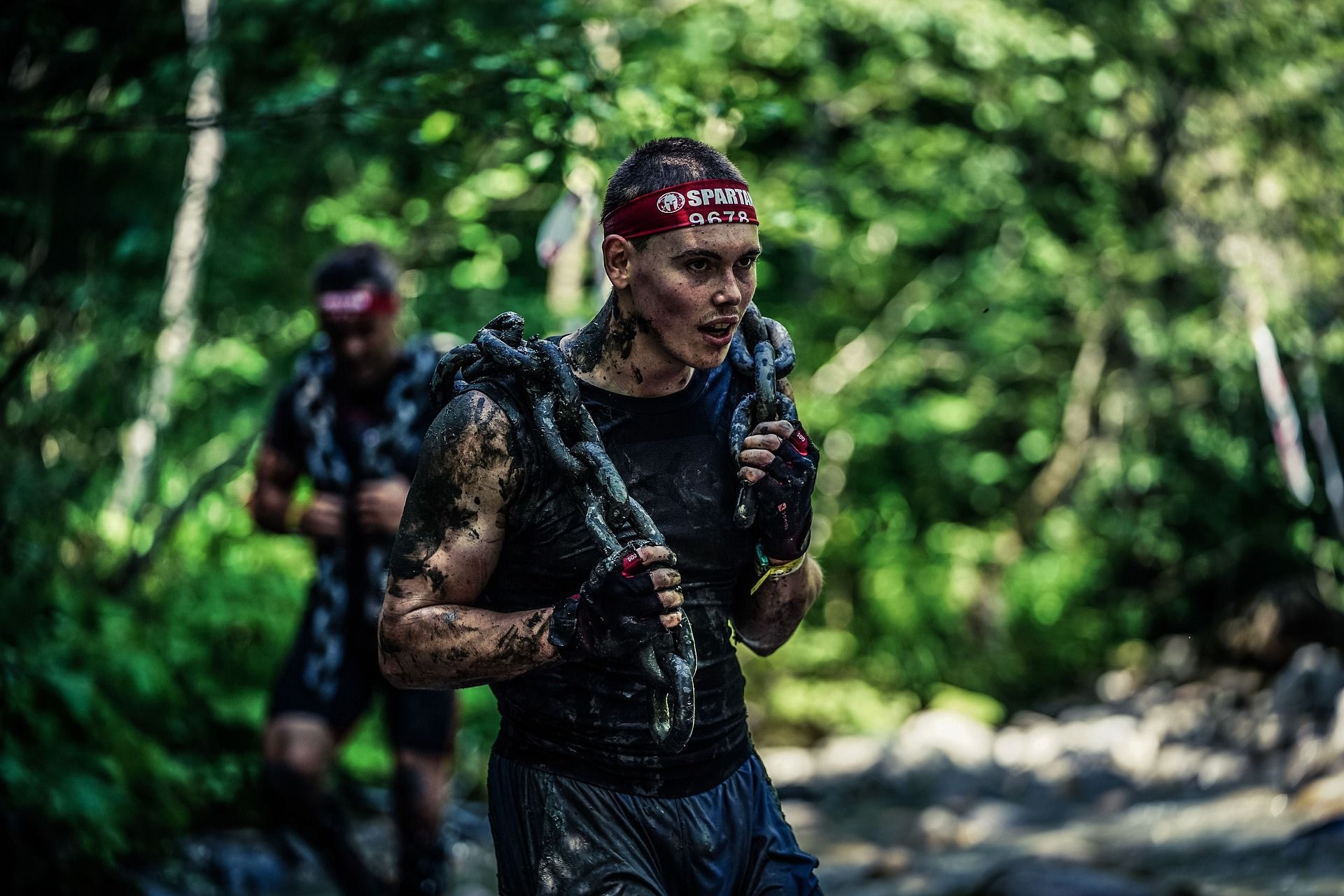
Book Notes:
“The ‘just right’ Goldilocks fit occurs when expectations are high, but so is support. High demand accompanied by warmth and understanding.”
“Toughness is having the space to make the right choice under discomfort.”
“As of 2018, the US Army is the largest employer of sports psychologists in the country.”
“In evaluating nearly a dozen methods of preparing soldiers for the stress they’d experience, there were two items sitting atop the list of recommendations.
First, emphasizing core skills that aid performance, including confidence, goal setting, attention control, arousal control, imagery, self-talk, compartmentalization, and mental skills foundation.
And second, ensuring those skills are mastered before exposure to stressful conditions. In other words, you need to teach the skill first.”
“Uncertainty demands a conclusion. We have an innate need for closure, however we can reach it.
Toughness is about making the pull for closure amid uncertainty work with you, not against you. It’s training the mind to handle uncertainty long enough so that you can nudge or guide your response in the right direction. To create space so that you don’t jump straight from unease to the quickest possible solution, but to the ‘correct’ one.”
“At each point along the way, our brain makes an internal calculation of whether this feels harder or easier than expected. Pain and fatigue are our body’s way of nudging us toward a course correction. We can’t sustain the pace, so we’d better slow down.
If we don’t listen, our body will take matters into its own hands, shutting us down to prevent catastrophic failure or damage – like a car that may run out of gas miles before its destination.
A tougher runner isn’t one who is blind with ambition or confidence, but one who can accurately assess the demands and the situation.”
“Autonomy is the switch that allows us to persist.”
“When we don’t have control, we lose the capacity to cope. It’s when we have a choice that toughness is trained. Our brain literally turns on, figuring out how to work our way through the situation at hand.”
“All or nothing often leaves you with nothing. Giving yourself a choice sometimes means entertaining the idea of quitting, slowing down, or even giving up. It’s not that I want you to do so, but by having a choice, by needing to make a decision, you are developing a sense of control.
By considering quitting as an option, you now have influence over the outcome, even if one result is negative. By actively considering quitting, instead of seeing it as something to avoid and never let cross your mind, you are now training toughness.”
“Anything that causes slight discomfort and unease is an opportunity to train your mental muscle to create space.”
“Fear is easy to instill. Trust is much harder. Instead of relying on fear and control, real toughness is linked to self-directed learning, feeling competent in your skills, being challenged but allowed to fail, and above all, feeling cared for by the team or organization.
In other words, toughness comes from the same building blocks that help create healthy, happy humans. Contrary to ingrained ideology, toughness isn’t developed through control or punishment; it’s developed through care and support.”
“Because we never truly reach zero in our body’s energy reserves (that would mean catastrophic failure), we use the level of importance and the risk versus reward to determine how close to zero we can get.
Is our life on the line? Is our child’s life in jeopardy? Then, we might be able to perform superhuman feats like lifting a car off a trapped child’s body. Is it a regular-season game, or is it Game 7 of the Finals? We might get a little extra juice in the latter case.
According to the latest science of fatigue, your brain essentially tries to protect you from harming yourself, and it uses the perceived risks versus the potential rewards to fix where that governor is. Having a strong purpose acts as a turbo boost.
Whether that purpose comes from God, family, playing for your teammates, or a mission that holds deep importance, when our pursuits match with our purpose, we persist for much longer.
Research shows that purpose and persistence are linked in the classroom, workplace, and athletic fields. When we have a purpose, we are able not only to endure and persist but also to provide a beacon that reminds us of what’s important and to make the right decision at the right moment.”
“Purpose is the fuel that allows you to be tough.”
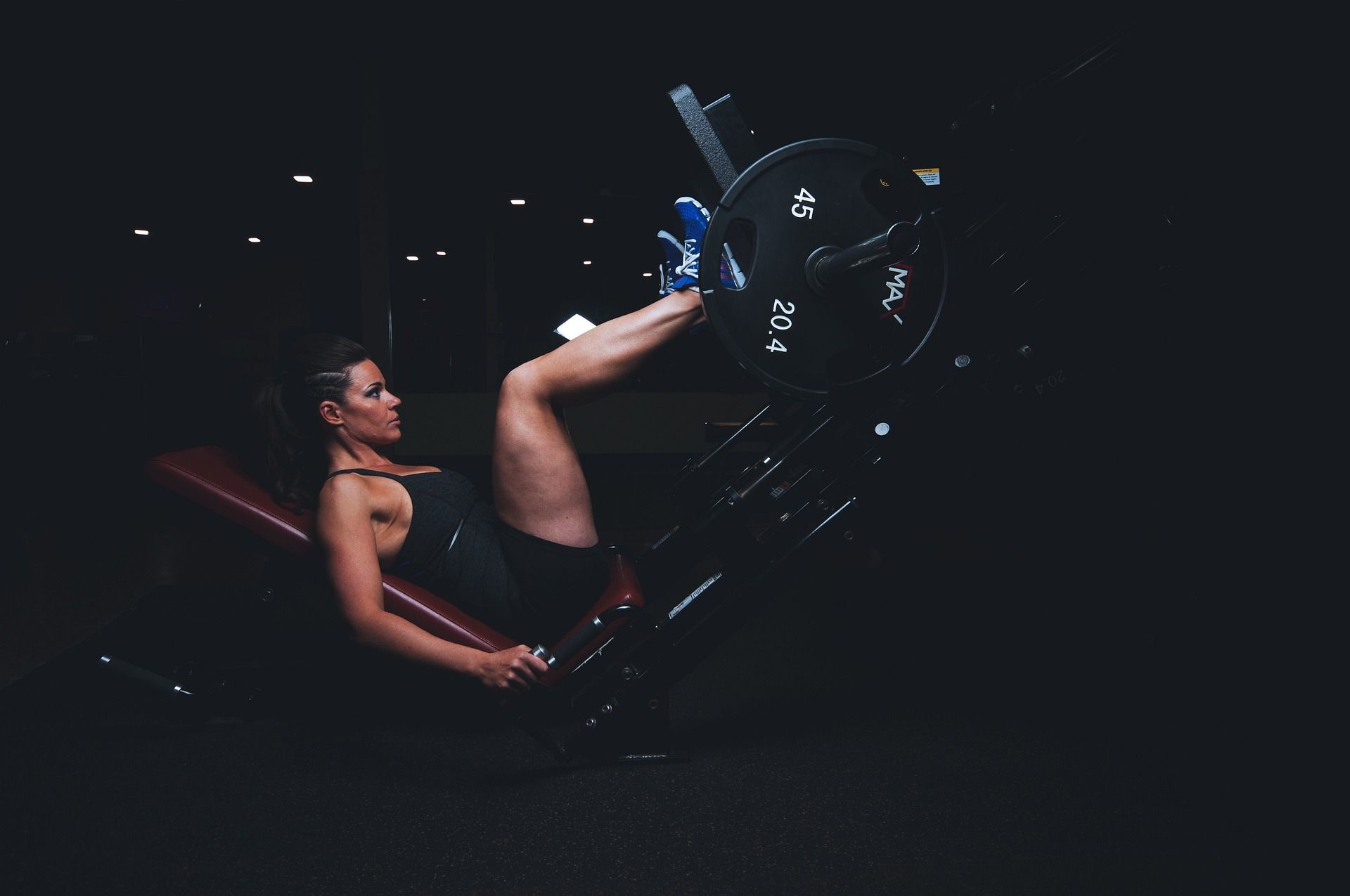
Important Insights from Related Books:
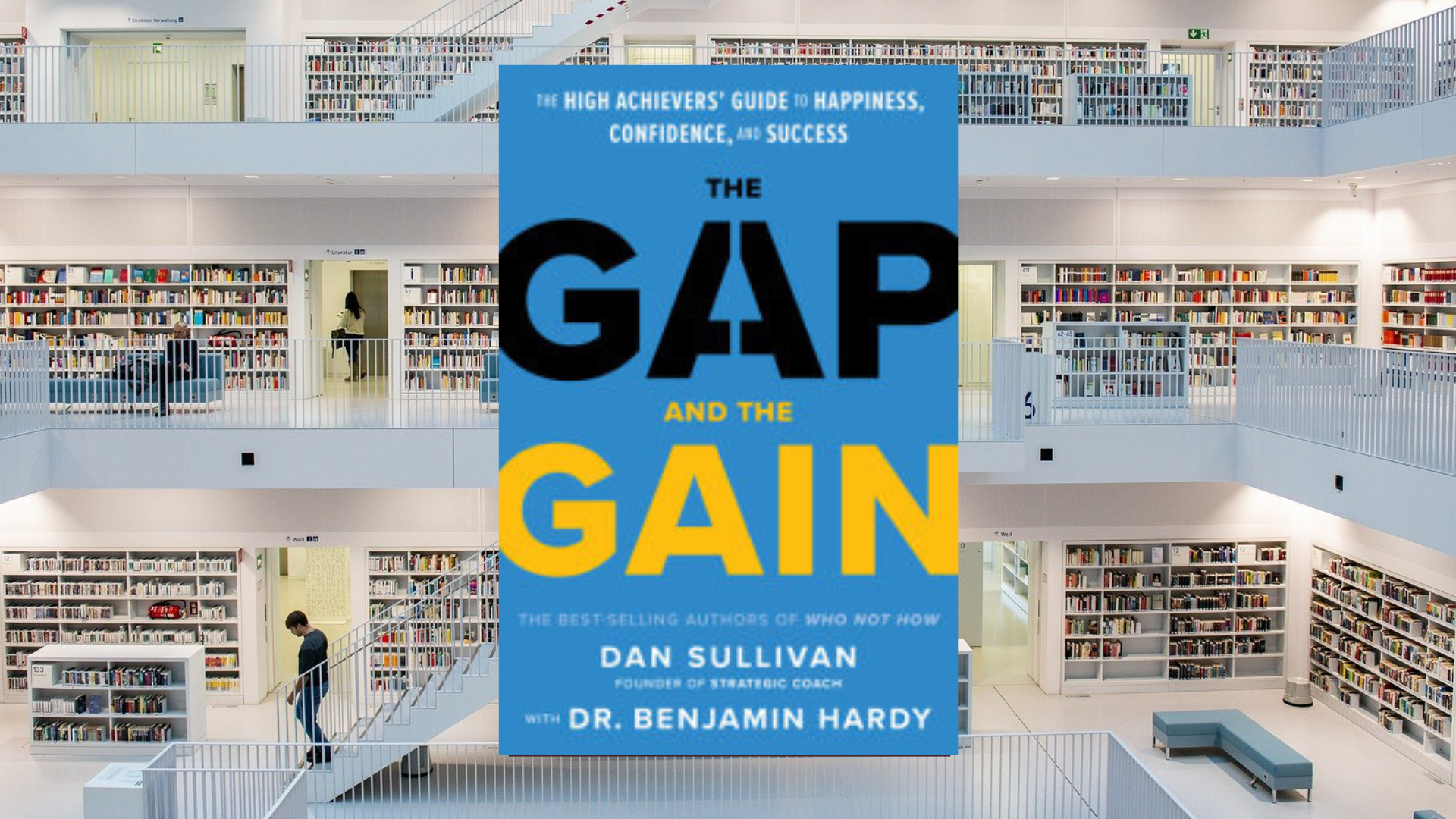
The GAP and the GAIN, by Dan Sullivan and Dr. Benjamin Hardy:
This book was responsible for several huge breakthroughs in my own life and work, and it's been the same for many others who have read it as well.
Here you'll find small, easy-to-underestimate strategies that pack a big productivity punch, as well as many other breakthrough ideas about happiness and overall success that could make a big difference for you too.
The core idea of the book, the importance of measuring progress against how far you've come, rather than focusing on how much further you have left to go is one of those breakthrough ideas.
Most people, especially highly ambitious people, are unhappy because of how they measure their progress. They don't give themselves enough credit for what they've already been able to achieve and instead push on in the direction of the moving target of their ideals.
As the authors point out, when we measure ourselves against that ideal, we're in "the GAP." However, when we measure ourselves against our previous selves, we're in "the GAIN."
When you spend less time in the GAP and more time in the GAIN, you're going to unleash a positive compound effect of productivity, success, and happiness in your life that many people have experienced as nothing short of astonishing. I am absolutely one of those people!
The GAP and the GAIN contains essential lessons about living intentionally, measuring what matters, and playing on your own side by appreciating how far you've come, rather than trying to live up to some impossible ideal that's always receding further into the distance.
I love Dan and Ben's work because it's an intelligent, nuanced approach to personal development that takes several different aspects of success into account at once for maximum effectiveness.
Their ideas will help you reshape the past in a way that serves you. They give you tools with which to expand your present possibilities. They show you how to create a compelling future vision for yourself, and they give you the motivation to keep moving toward it. All three work together, and The GAP and the GAIN is a wonderful introduction to these profound ideas.
Sample Quotes from the Book:
“Ideals are meant to provide direction, motivation, and meaning to our lives. They are not the measuring stick. Our society has trained us to measure ourselves against our ideals, which by definition are unreachable. Goals, conversely, are reachable.”
“Your happiness as a person is dependent on what you measure yourself against.”
“This brings up a highly nuanced and crucial distinction: you can want something and be 100% committed to that thing without needing it. This is the counterintuitive reality: by no longer needing what you want, you are actually far more enabled to get it.”
Read the Full Breakdown: The GAP and the GAIN, by Dan Sullivan and Dr. Benjamin Hardy
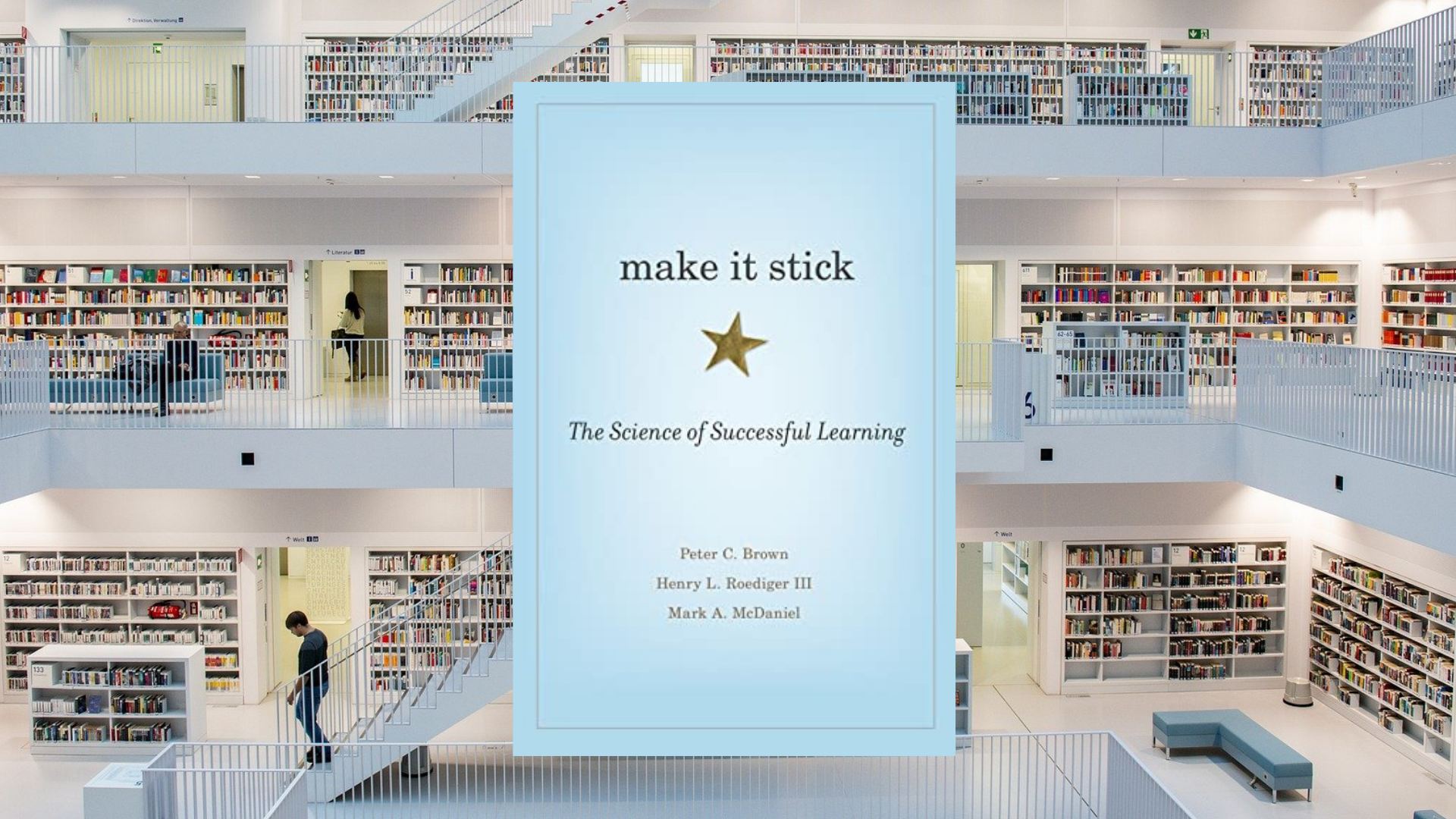
Make It Stick, by Peter C. Brown, Henry L. Roediger III, and Mark A. McDaniel:
Everything you want in life is on the other side of effort and sacrifice. In life, we appreciate what we worked hardest for, and in education, we remember what we struggled to learn.
That's one of the core messages in Make It Stick, which represents the gold standard when it comes to books about effective study strategies and efficient learning.
Basically, we remember the information that we recall to mind most frequently, and the more effortful it is to do so, the more entrenched it becomes in our minds and the less likely we are to forget it when we need to use it.
At the end of the day, the universe rewards effort, exertion, and striving. We need to go beyond what we think we can do if we want to find out how far we can really go.
This same theme - the hardest path usually being the best - shows up again and again in life, and Make It Stick will show you how applying that wisdom to your studying and your practicing will allow you to reach levels of mastery that are simply unavailable to people who aren't familiar with the science of successful learning.
Sample Quotes from the Book:
“It comes down to the simple but no less profound truth that effortful learning changes the brain, building new connections and capability. This single fact - that our intellectual abilities are not fixed from birth but are, to a considerable degree, ours to shape - is a resounding answer to the nagging voice that too often asks us, 'Why bother?'
We make the effort because the effort itself extends the boundaries of our abilities. What we do shapes who we become and what we're capable of doing. The more we do, the more we can do."
“There’s virtually no limit to how much learning we can remember as long as we relate it to what we already know. In fact, because new learning depends on prior learning, the more we learn, the more possible connections we create for further learning.
Our retrieval capacity, though, is severely limited. Most of what we've learned is not accessible to us at any given moment. This limitation on retrieval is helpful to us: if every memory were always readily to hand, you would have a hard time sorting through the sheer volume of material to put your finger on the knowledge you need at the moment."
“Students who have been quizzed have a double advantage over those who have not: a more accurate sense of what they know and don't know, and the strengthening of learning that accrues from retrieval practice."
Read the Full Breakdown: Make It Stick, by Peter C. Brown, Henry L. Roediger III, and Mark A. McDaniel
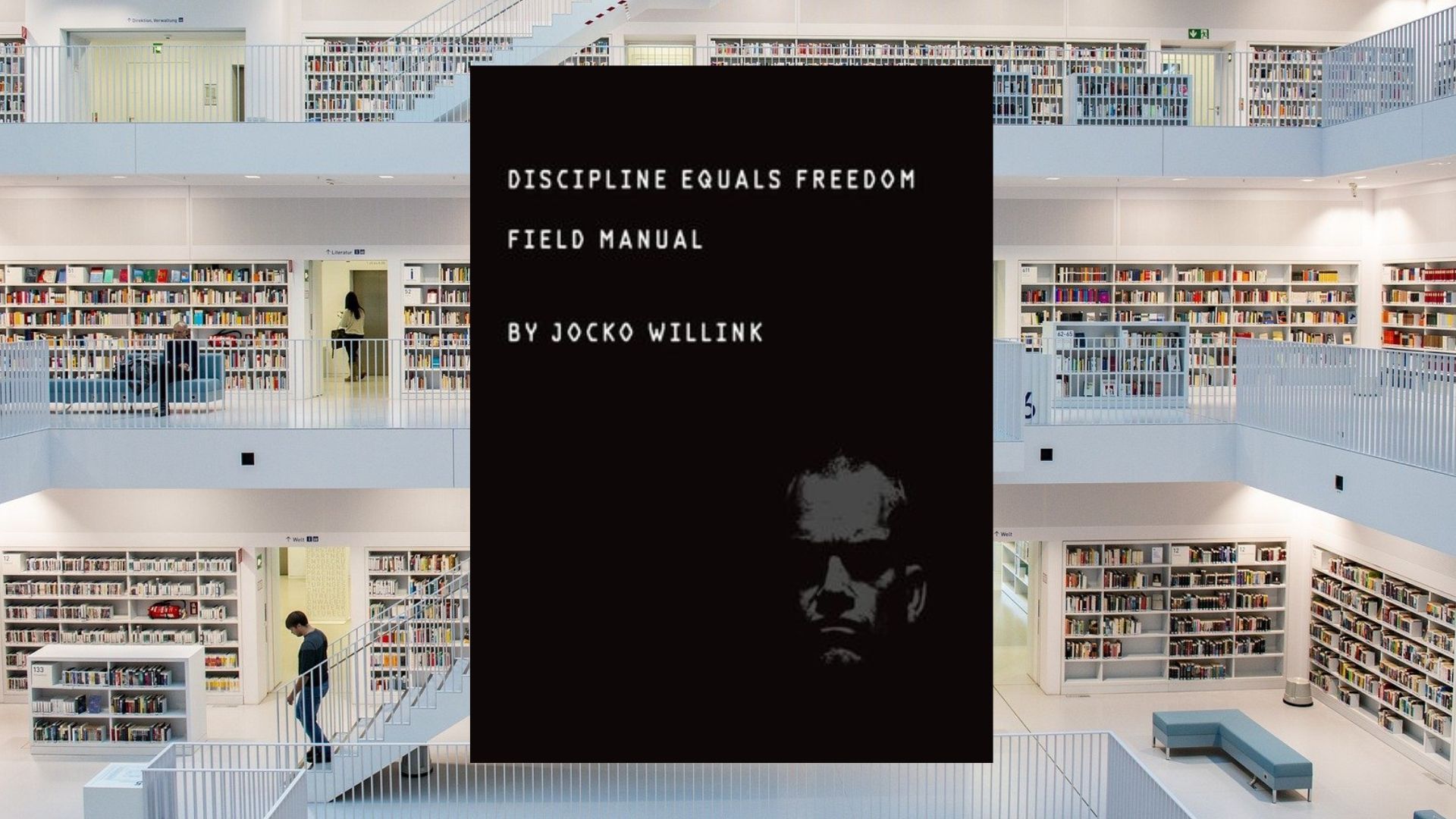
Discipline Equals Freedom: Field Manual, by Jocko Willink:
This book packs a huge motivational punch, even though, ironically, motivation and discipline couldn't be more different from each other.
You see, motivation can't be trusted. It can't be relied upon, since it comes and goes with the way you feel. Discipline, on the other hand, is your friend for life.
Motivation can never be allowed to dictate action, says Willink. Instead, you need to do what needs to be done, regardless of whether or not you actually feel like doing it. That’s the essence of self-discipline, of being an adult.
Jocko Willink's methods for success were developed in the SEAL Teams, where he spent most of his adult life, enlisting after high school and rising through the ranks to become the commander of the most highly decorated special operations unit of the war in Iraq. That's where he draws much of his credibility from.
This is a very short book - one you could read in a little more than an hour, I’d say - but it’s right up there in terms of power with David Goggins’ book, Can’t Hurt Me.
Jocko's book includes strategies and tactics for conquering weakness, procrastination, and fear, and in this breakdown, we'll cover important ideas like binary decision-making, as well as examine the positive use of aggression and the insidious natures of hesitation and weakness.
However, as the title implies, the whole project is mainly about freedom. Freedom from enslavement to your own mind, to addictions, to compulsions of all kinds. Freedom from the seductive call of laziness, indolence, and sloth.
Jocko also makes these valuable lessons easy to remember and apply. In the book, there are bolded passages and ALL CAPS in some places for emphasis, and his incredibly motivating and powerful ideas are captured in short, pithy phrases that you could carry around with you for life. And you probably should.
Sample Quotes from the Book:
“Do not think you have done enough. It does not matter what you did yesterday. Yesterday is gone. And today: THE COUNT IS ZERO. Wake up with that attitude every day. You have to prove yourself all over again. You have to earn your seat at the table. You have to GET AFTER IT.”
“Impose what you want on your brain: Discipline. Power. Positivity. Will. And use that Mind Control to move your life where you want it to be: stronger, faster, smarter, quicker, friendlier, more helpful, more driven. Don’t let your mind control you. Control your mind. And then you can: SET IT FREE.”
“Fight weak emotions with the power of logic; fight the weakness of logic with the power of emotion.”
Read the Full Breakdown: Discipline Equals Freedom: Field Manual, by Jocko Willink
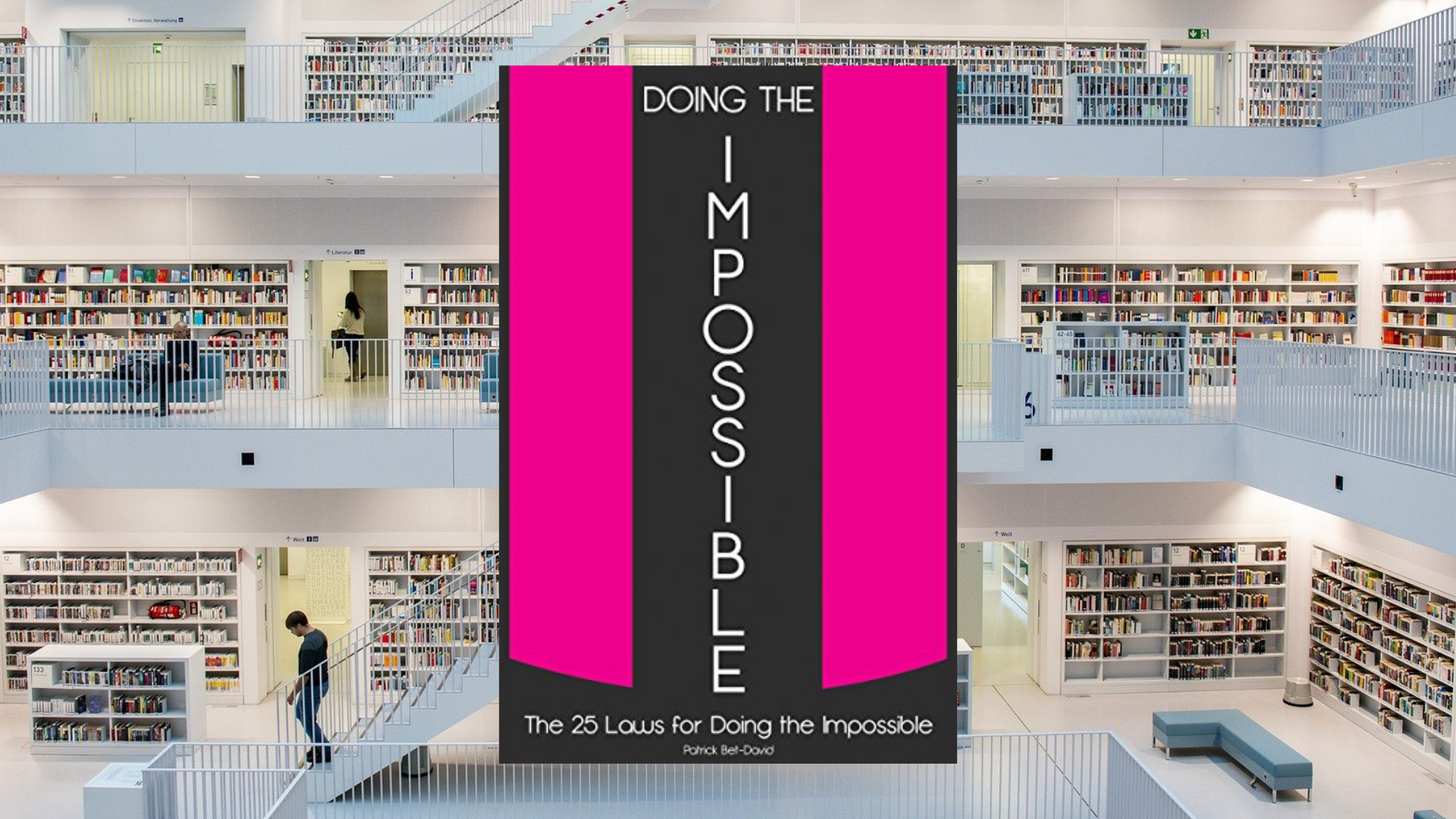
Doing the Impossible, by Patrick Bet-David:
I like to think of Patrick Bet-David as kind of like an Iranian-American Jordan Peterson.
For one thing, he's one of the most impressive individuals I've ever discovered on social media, and his YouTube channel, Valuetainment, reaches more than 3 million subscribers, so I'm definitely not alone in that opinion.
Bet-David is strong-willed, confident, inspiring, and opinionated, and possesses the hard-earned self-belief of an absolute winner. But what's also impressive is how open he is to having his mind changed.
He consistently invites guests onto his podcast with whom he shares ideological differences and gives them all a fair hearing. He wants to learn. He wants to be right, sure, but mostly he wants to find out the truth, regardless of where the truth comes from.
Doing the Impossible is one of his earliest books, and I think of it like the Tao Te Ching of self-improvement books: a short read that you can finish in an hour, but could think about for the rest of your life.
If you're ready to step up and into who you know you could be, this book is the one you should read next.
You see, too often, we forget how capable we really are. We need to believe in ourselves the same way that Patrick Bet-David believes in us, and arm ourselves with the tools, tactics, and mindset we need in order to extract the absolute most from our virtually limitless potential. That's what Doing the Impossible is about.
I've written previously (over and over again) that you don't need to achieve anything massive in order to be a valuable, infinitely worthy human being. You don't need to achieve the impossible or do anything other than just exist in order to be worthy of unconditional love and unconditional positive regard.
But...
If you do wish to attempt the impossible - if you wish to turn the impossible into the imaginable and then the actual - then this is the book you need by your side.
Sample Quotes from the Book:
“A visionary is someone who is not living in the here and now. He or she has already seen at least five moves ahead and is living in that reality.”
“If the impossible throughout history has become the imaginable, and then the actual, why do we think that our dreams are impossible for us to accomplish in our own lives?”
“It may take years for us to actually transform into the person we see ourselves as; but once we truly believe that is the person we are meant to be, eventually we find a way to embody that identity.”
Read the Full Breakdown: Doing the Impossible, by Patrick Bet-David
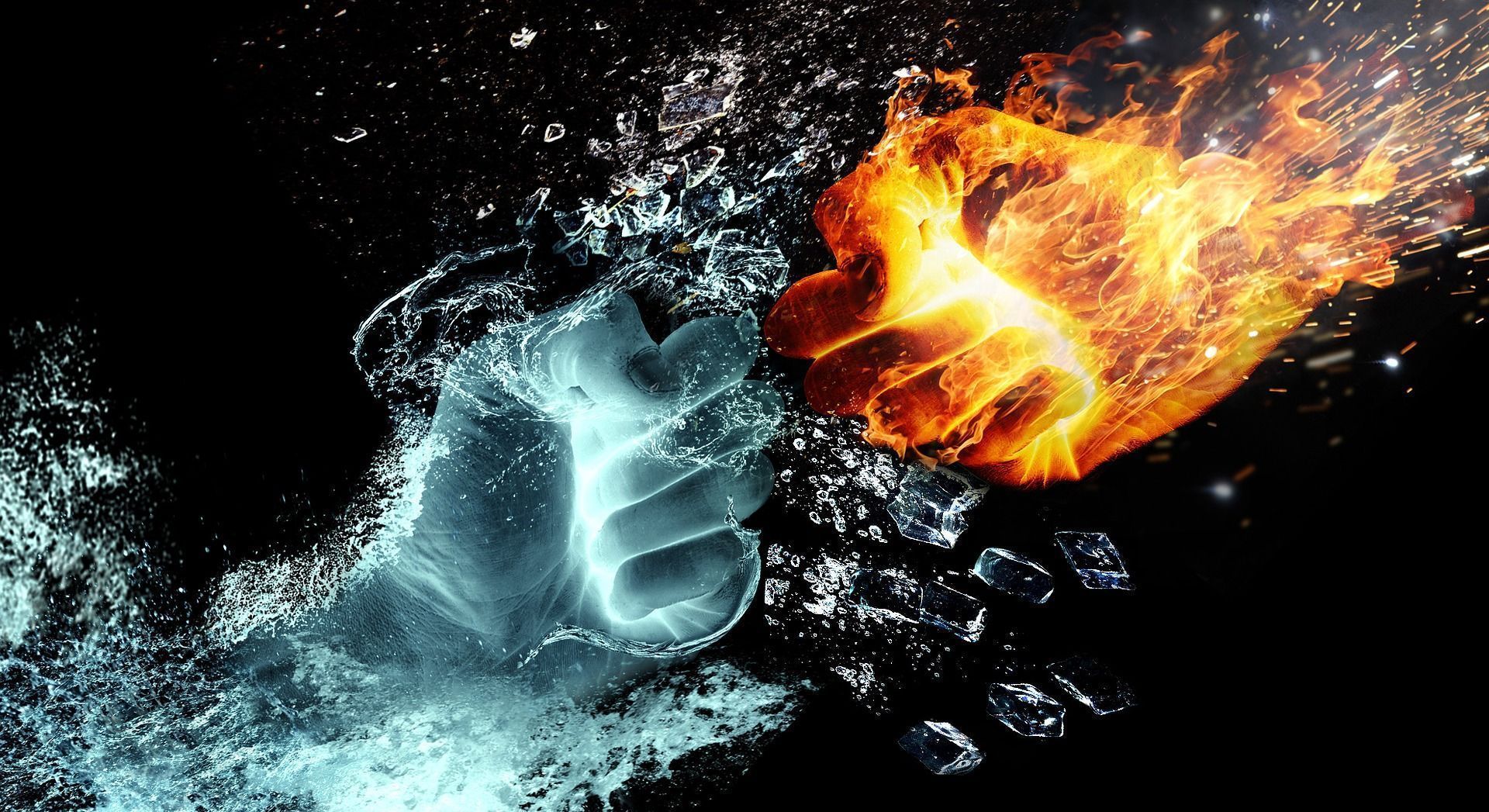
The View from the Opposition:
No one's ideas are beyond questioning. In this section, I argue the case for the opposition and raise some points you might wish to evaluate for yourself while reading this book.
#1: Some People Just Need to Toughen Up
Many of the people who criticize this book say that Steve Magness is a little too light on discipline, and that, basically, some people just need to toughen up.
They need more of the "old" model of toughness, not less; they do actually just need to block out that inner voice that whispers to them that maybe it's time to quit.
The book is open to this particular criticism, I feel, although Magness is basically right in that the old model does more harm than good. And I don't think that he's necessarily endorsing taking your foot off the gas or laziness in general.
But then again, I do happen to think the wider culture is guilty of coddling people and sending the message that it's okay to give less than your absolute best.
I'm vehemently against this.
No one else will ever be able to tell whether you are actually doing your best, but it's your responsibility as a human being to do everything in your power to live rightly, to find out where exactly your limits actually are, and to leave this world better than you found it. This is inescapable, and to settle for anything less than your absolute best is a letdown to the rest of humanity. There, I said it!
Now, I don't necessarily think that Steve Magness is telling people that it's okay to take the easy way out. In fact, his way is more difficult, more nuanced, more insightful, and certainly takes longer to master.
Learning to listen to yourself and develop your capacity to do hard things will take the rest of your life. And the guy works with Olympic athletes, so it's not like he's playing to lose!
I just think that you have to be aware at the same time that there is more inside of you, and you are always being called on by Life to bring it out of you and make it real. There's more inside of you, and Life demands that you give more too.
"The test of a first-rate intelligence is the ability to hold two opposed ideas in the mind at the same time and still retain the ability to function.”
-F. Scott Fitzgerald

Questions to Stimulate Your Thinking:
The quality of your questions determines the quality of your life. That's also how you get the absolute most out of any book that you decide to read:
You ask great questions the whole time - as though the book was on trial for its life.
Here in this section are a few questions that can help guide and stimulate your thinking, but try to come up with your own additional questions, especially if you decide to read this book the whole way through...
#1: "When is the last time you felt that you actually did your best? Not 'tried really hard,' but actually put forth everything you had within you in order to accomplish a meaningful goal or objective?"
#2: "What is your preferred motivational style? Do you respond best when challenged by someone like David Goggins? Urged on to competitive greatness by someone like John Wooden? Or gently coaxed into merely getting through what you're currently facing?"
#3: "When is the last time you mentally reframed a challenge you were facing? What was the inner experience like of turning what was in front of you into something different, something that was more manageable and doable?"
#4: "How often do you actively tune in to your emotions and look for the hidden message that your body is trying to send you? Are you open to receiving these messages, or do you tend to block them out? Why?"
#5: "Can you be your own biggest champion? Your own best friend? Your own most enthusiastic fan? Have you ever experienced this for yourself?"
"Judge a man by his questions, rather than by his answers."
-Voltaire
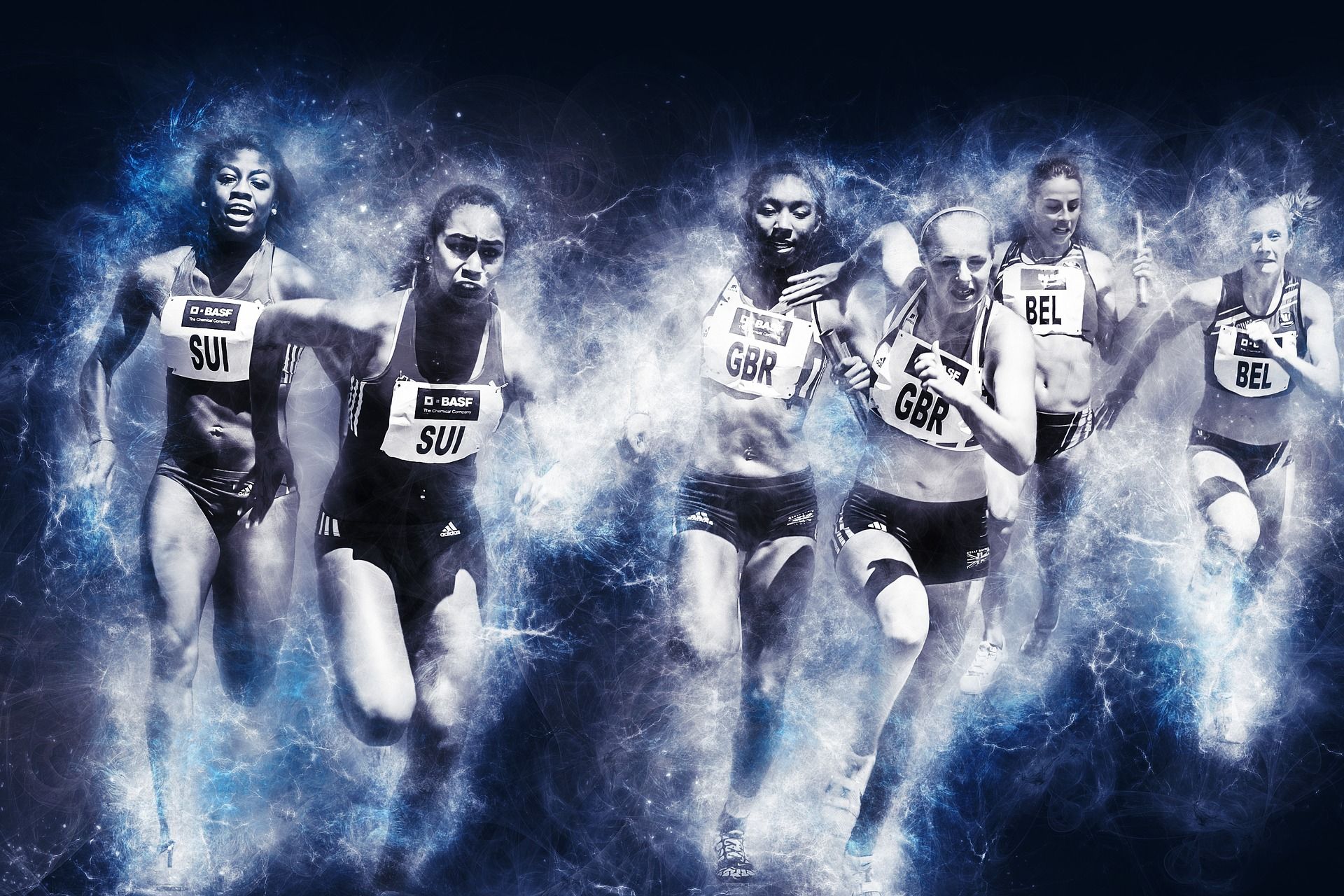
Action Steps:
So you've finished reading. What do you do now?
Reading for pleasure is great, and I wholeheartedly support it. However, I am intensely practical when I'm reading for a particular purpose. I want a result. I want to take what I've learned and apply it to my one and only life to make it better!
Because that's really what the Great Books all say. They all say: "You must change your life!" So here, below, are some suggestions for how you can apply the wisdom found in this breakdown to improve your actual life.
Please commit to taking massive action on this immediately! Acting on what you've learned here today will also help you solidify it in your long-term memory. So there's a double benefit! Let's begin...
#1: Tune In at Least Once a Day
Your body is sending you messages all the time about what to approach, what to avoid, what to fear, and what to stand up to.
How often - and how attentively - we listen for and receive these messages can be the difference between success and failure, between a life of "staying down" and a life of getting up again each time to fight again.
This first Action Step is about actively listening for these messages that your body is sending you, and using them to help you move forward when appropriate. Hardly anyone does this. But you can, and it could make all the difference.
So the next time you're feeling any kind of strong emotion like fear or excitement, pause for a few minutes (or seconds, if that's all the time you have before you need to act), and deeply consider the message your body is attempting to convey. Because your body is trying to help you, despite how it seems sometimes, and to be able to help you, you need to be listening in the first place.
Now, the message might not be important or even worth heeding! It's up to you whether to actively listen to it and change your behavior because of it, or let it go to mental voicemail and proceed with your original intention. This whole process gets easier over time, but it never gets any less important.
#2: Give Yourself Many Ways to Win and No Way to Lose
What I mean here is that life affords us many opportunities to gain several benefits from the same action and that oftentimes, those same opportunities come with very little downside. I can give you a few examples here.
For instance, learning to be a better writer is never going to be a bad idea. Same with learning how to sell and how to market, and it's even the same with different types of jobs.
Communication is so integral to everything we do as human beings, so learning how to do it better is never going to be a waste of time, regardless of whether you actually become a professional writer.
You could even practice salesmanship by becoming a door-to-door salesperson, and not only could that be quite lucrative, but you'd also be gaining all these other high-value skills at the same time.
Even if you get 100 doors slammed in your face in a row, it would still have been worth it because you're learning how to embrace and deal with rejection, how to structure an opening so it's less likely that you're going to have the door slammed in your face the next time, etc. So many ways to win, and virtually no downside.
Personally, I hate wasting my time, so there always has to be something else in it for me to be interested in something. People often wonder why I've worked so long at bars, but that's how I became such a fantastic listener! That's how I learned these essential problem-solving skills, how I learned to speak to women, how I learned to stand up for myself...and so much more! Working as a bouncer gave me so many ways to win, but most people were completely blind to that. All they saw was a paycheck (relatively small as it was) and decided it wasn't for them.
So regardless of what, specifically, you do, make sure that it's serving you in some way. And look for the hidden benefits of certain activities like public speaking or traveling! Set yourself up with multiple ways to win and no way to lose.
#3: Shoot for 95% Compliance
You obviously don't have to be perfect, and honestly, you don't even have to be better...you just have to try. You have to do your best. That's literally the most that anyone could ever ask of you.
What I've found helpful on top of this, is to shoot for 95% compliance when it comes to following a plan, whether it be a workout plan, diet plan, study plan, or anything else.
Give yourself some grace, some leeway, but not too much. 95% compliance is still challenging; it's still going to demand something from you, but it's not going to place unrealistic expectations of perfection upon you that you could never possibly live up to.
Tracking this is important too. As they say, the best way to manage your time is to figure out where you're spending it now, and it's the same with tracking how well you're sticking to your plan. So what's 95%?
For example, if you're aiming for 95% compliance on your meal plan and you're eating 35 meals a week (5 meals a day), then your 95% compliance would be 33 "clean" meals out of 35. Technically, that gives you 94.28% compliance, but let's just shoot for 95% accuracy on these calculations too!
What this means practically is that in any given week, you can afford to eat whatever the hell you want for 2 of those weekly meals. As long as you're on track with the other 94.28% of your meals, you shouldn't feel any guilt about having a cheeseburger or two on the weekends.
This is more reasonable and sustainable than imagining you're ever going to be 100% perfectly disciplined all the time and that you're going to stick with your plan at every single moment of every single day. Modern toughness is synonymous with sustainable success, and this method ensures that you're as tough as anyone can ever reasonably expect you to be.
"The path to success is to take massive, determined action."
-Tony Robbins


About the Author:
Steve Magness is a world-renowned expert on performance, coauthor of Peak Performance: Elevate Your Game, Avoid Burnout, and Thrive with the New Science of Success and The Passion Paradox: A Guide to Going All In, Finding Success, and Discovering the Benefits of an Unbalanced Life, and the author of The Science of Running: How to Find Your Limit and Train to Maximize Your Performance. Collectively his books have sold more than a quarter-million copies in print, ebook, and audio formats.
Magness has served as a consultant on mental skills development for professional sports teams, including some of the top teams in the NBA. He has also coached numerous professional athletes to the Olympics and world championship level. He has coached seven athletes to top Top-15 finishes at a World Championship, twelve athletes to births on the World Championship or Olympic teams, and guided more than twenty-five Olympic Trials Qualifiers. He helped guide Roberta Groner, a forty-one-year-old full-time nurse, to 6th place in the marathon at the 2019 World Championships.
Magness was a columnist for Running Times magazine and is now the co-host of two podcasts: The Growth Equation podcast, with Brad Stulberg, and On Coaching with Magness and Marcus, with Jon Marcus. His writing has also appeared in Runner’s World and Sports Illustrated. In addition, Steve's expertise on elite sport and performance has been featured in The New Yorker, Wall Street Journal, The New York Times, Men’s Health, The Guardian, Business Insider, and ESPN The Magazine.
Steve received his undergraduate degree from the University of Houston and a graduate degree from George Mason University. He currently lives in Houston, Tx with his wife Hillary. Once upon a time, he ran a mile in 4:01 in high school, at the time the 6th fastest high school mile in US history.
Additional Resources:
Steve-Magness.com | Main Website
Steve Magness | Performance Coaching
This Book on Amazon:
Do Hard Things, by Steve Magness
If You Liked This Book:
Peak Performance, by Brad Stulberg and Steve Magness
The Passion Paradox, by Brad Stulberg and Steve Magness
The Practice of Groundedness, by Brad Stulberg
The GAP and the GAIN, by Dan Sullivan and Dr. Benjamin Hardy
Make It Stick, by Peter C. Brown, Henry L. Roediger III, and Mark A. McDaniel
Discipline Equals Freedom: Field Manual, by Jocko Willink
Doing the Impossible, by Patrick Bet-David

